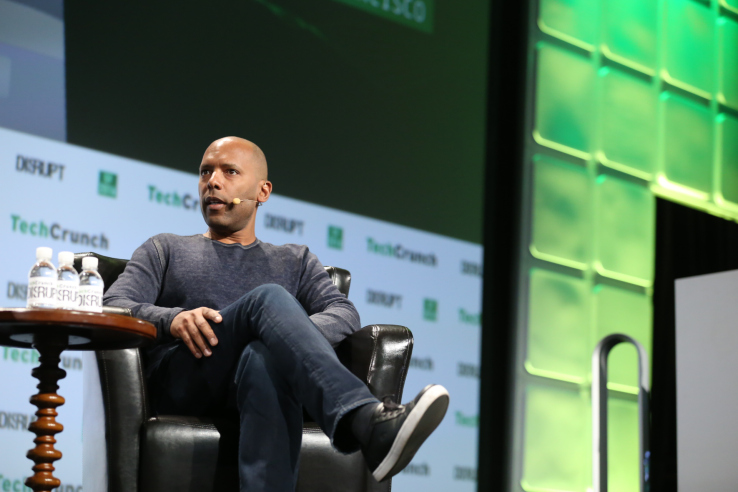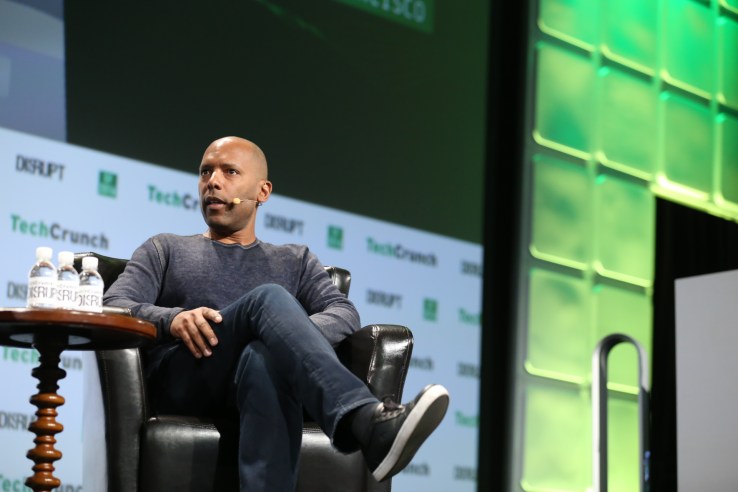

Silicon Valley has a huge diversity problem, but a blunt instrument hiring quotas for diverse candidates still isn’t the answer, according to Slack head of engineering Leslie Miley. Instead, Silicon Valley — and Slack — have to get inventive, and look in some non-obvious places, to figure out how to bring in candidates that are outside the traditional Silicon Valley entrepreneur.
But that quotas are even in the conversation is just another example that diversity in Silicon Valley is a huge problem, and Slack is doing a lot to level the playing field, as Miley says. The company has blind coding test examinations for potential candidates, they look outside of Silicon Valley (Miley noted they just brought in someone from Tennessee) and is now opening an office in Toronto, another highly diverse city, Miley said.
“I don’t think they work, in particular in think it’s another way saying we wont lower the bar,” Miley said on stage at TechCrunch Disrupt SF. “What I’m saying is we want a level playing field, you need to have a level playing field. How you level it is, you don’t [just] go to places like MIT and [University of California — Berkeley] and Stanford and focus on those places. I don’t want to have to talk about this again, I don’t believe in quotas, I think they’re inherently wrong and I think there are realistic solutions that don’t have quotas attached to it.”
Slack has been very vocal about its efforts to promote a diverse culture at the company — and Miley is probably one of the best-suited people in the discussion. The company has made a lot of effort to branch out into regions outside of Silicon Valley in order to attract talent in regions that are outside the traditional Silicon Valley mold. And it’s looking outside the traditional places that Silicon Valley giants, startups and venture capitalists may be pattern-matching into the best candidates.
That includes looking in unexpected areas in the United States, too, including cities like Detroit, Richmond or even Nashville, Miley said. Those cities are plenty diverse and also have a large pool of highly diverse and talented candidates, and Slack is doing what it can to expand into those areas. And larger tech companies should be doing the same thing, he said.
“[Large tech companies] don’t need to set up shop at the same scale,” Miley said. “Could you put 200 people, definitely, it’s a drop in the hat for Google or Facebook, it’s actually cost competitive to areas in India and China. I’ve had teams, managed over 100 people in India, I know what the cost structure looks like… [Then] people who want advancement know they have to come to HQ, you have people coming to Cupertino, Mountain View. What happens when you hire diverse people — they talk to their friends, their network looks like them. They’re gonna hire friends, associates, you start to make inroads in this company.”
A big part of the issue is that networks within companies tend to self-select within their own networks, keeping diverse candidates from coming into the company. That leads to a reinforcing cycle where diverse candidates from different regions and backgrounds, which might bring in their own friends to the companies, might not feel welcome in those companies. For Slack, this is something the company has been trying to do from day one, which makes it easier to attract that kind of talent when getting the ball rolling while the company is small, Miley said.
There are, of course, a lot of efforts being made by larger technology companies. For example, Pinterest and Facebook institute the “Rooney Rule” or something similar, in which companies ensure they consider at least one minority candidate for open positions. But in some cases there’s more work to be done, Miley said.
“There’s an organization called fwd.us, a group set up by a diverse group of entrepreneurs, and they are looking to raise H-1B visa cap — I support that, I think it’s great,” Miley said. “They got together to raise H-1B, the lobbying firms for these companies, spending millions per quarter, up to $12 million a year on raising H-1B, why don’t we have something like that for increasing diversity and inclusion? I think that’s a place you can start. You get people doing something like that and apply it to the U.S., to less diverse areas. Big Silicon Valley firms are, of course, trying. But sometimes those attempts can be a little ham-handed.”

